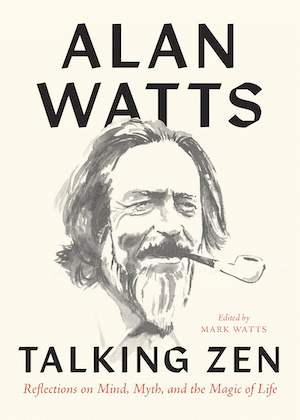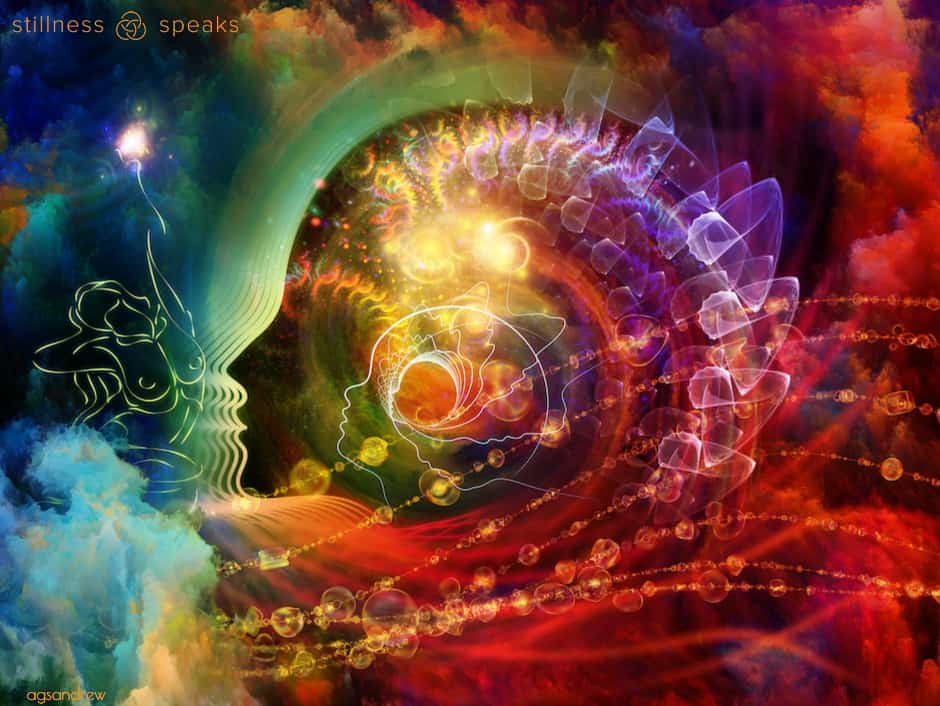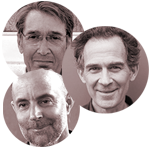great social lie: “… My inside is not separable from the outside world … the one who either dominates the world or suffers under it … has vanished … never was there …” ~ Alan Watts
” … You are awareness. Awareness is another name for you … “ ~ Ramana Maharshi
Awareness is primordial; it is the original state, beginning-less, endless, uncaused, unsupported, without parts, without change. ~ Nisargadatta Maharaj
Ramana Maharshi, Nisargadatta Maharaj, and Alan Watts words are different but all three are still talking about our true nature : awareness … and if one is identified with awareness (vs the form of the “one” who is aware … vs the object of awareness) then the illusion of one’s form is revealed (it is dissolved) … and this is at the heart of Alan’s “great social lie” … which he covers in the closing segment of his talk on Taoist Ways …
Alan’s talk was part of a 1965 Esalen (Big Sur, California, USA) seminar on the tradition of Taoism. That entire talk (the first session of the seminar) is captured in the chapter Taoist Ways … from his latest book Talking Zen: Reflections on Mind, Myth, and the Magic of Life …
In this concluding part 3, of our 3-part series (that offers the entire chapter), Alan briefly delves into the topic of “thinking about thinking” … including living “… in the realm of thinking about thinking with full spontaneity …” and “… liberation of the mind from symbols …” … which ultimately leads to the “great social lie” …
This series is part of our ongoing Shambhala Publications series that offers substantive previews of selections from Shambhala Publications new and classic titles …
All italicized text here is adapted from Talking Zen by Alan Watts, © 1994 by the Alan Watts Electronic University. This edition published 2022. Reprinted in arrangement with Shambhala Publications, Inc. Boulder, CO. Shambhala Publications has also generously offered a free downloadable PDF of the Table of Contents (link is at the bottom of the post).
You can purchase the book at Shambhala Publications or Amazon.
And here’s Alan’s closing segment on …
Thinking About Thinking & The Great Social Lie
Let us return to the problem of thinking about thinking. Sometimes people are removed from life because they dwell in the world of the intellect. They are living in a world of symbols. Intellectuals are in a way removed from life, tied up in their categories and catalogs, their musts and must nots. Yet this realm is also real, and thinking about thinking can be lived with as much directness, freshness, and spontaneity as life without thinking. In order to live in the realm of thinking about thinking with full spontaneity, we must no longer regard the symbol, the thought, the idea, or the word as a block to life or a means of escape from life. To be able to use the symbol, but not as means of escape, you have to know that you cannot escape in the first place. Not only can you not escape, but there is no one to escape: there is no one to be delivered from the prison of life.
The liberation of the mind from symbols is exactly the same process as breaking up the links between successive moments and the illusion of a continuing self that travels from moment to moment. Such a continuing self is as much an illusion as a wave of moving water, or the appearance of a solid circle created by moving a cigarette in the dark. The fallacy of the continuous self is pointed out by the saying, “No one perceives anything, and no one experiences anything— there is simply seeing and experiencing.” In fact we introduce these redundancies through language, when we talk about seeing sights, hearing sounds, and feeling feelings. There are sights, there are sounds, there are feelings. We do not feel a feeling; the feeling itself already contains the feeling of it. This is very simple. Sight does not depend on the existence of the seen and the seer, bound together by some mysterious process. The seer and the seen, the knower and the known, are what we call “terms.” Terms mean ends, and these are in mathematical language called limits. Now, when we pick up a stick, the stick has two ends, and they are the terms of the stick. The ends of the stick do not exist as separate points that encounter each other on the occasion of meeting at a stick. Actually, they are abstract points, and the ends in and of themselves and considered as themselves are purely geometrical Euclidian imaginations; the stick is the reality.
In the same way, in the phenomenon called experience the reality is not an encounter of the knower and the known. The reality is the experience that can be termed as having two aspects, two ends, the knower and the known, though this is only a figure of speech. In a neurological sense, everything you see is yourself. What you are aware of is a state of your nervous system, and there is no other knowledge whatsoever. That does not mean that your nervous system is the only existing reality, and that there is nothing beyond your nervous system, but it does mean that all knowledge is knowledge of you, and that therefore, in some mysterious way, you are not different from the external world you know. If you see, then, that what you experience and what you are are the same thing, then take it a step further and realize also that you are in the external world you are looking at. Just as I am in your external world, you are in my external world, but I am in the same world you are. My inside is not separable from the outside world. It is something that the so-called outside world is doing, just as it is doing the tree, the ocean, and everything else in the outside world. Now, isn’t that great! We have now completely eliminated the person in the trap, the one who either dominates the world or suffers under it. It has vanished, it never was there, and when that happens, you can play any life game you want. You can link the past, the present, and the future together and play roles, but you know that you have seen through the great social lie that one accumulates or owns experiences, whether memories, sights, sounds, or other people. We are always building up our self as the haver of all this, but if you think that, you have been had!
Stay tuned for more in this ongoing Shambhala Publications series …
All italicized text here is adapted from Talking Zen by Alan Watts, © 1994 by the Alan Watts Electronic University. This edition published 2022. Reprinted in arrangement with Shambhala Publications, Inc. Boulder, CO.
And, click here for the free, downloadable PDF of the Table of Contents.
You can purchase the book at Shambhala Publications or Amazon.
And, may you … build up your self as the not-haver of all this … and …
May you remain safe and healthy.












